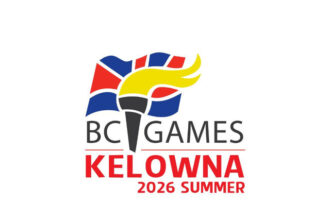The last time a Canadian team hoisted the Stanley Cup, Jagged Little Pill topped the charts, and most of today’s NHL rookies weren’t even born. As the 2024-25 season approaches, the infamous drought reaches 31 agonizing years—a painful reality for hockey’s homeland that has fans across the nation wondering: will we ever see Lord Stanley return north of the border?
The 1993 Montreal Canadiens remain frozen in time as the last Canadian champions, a fact that becomes more bewildering with each passing season. The drought isn’t just a statistical anomaly; it’s become a psychological burden for Canadian franchises and their devoted fans. Seven Canadian teams—nearly a quarter of the league—have collectively failed where American franchises with far less hockey tradition have succeeded.
Edmonton came tantalizingly close in 2022, with Connor McDavid’s Oilers pushing all the way to the Stanley Cup Final before falling to the Florida Panthers. The Oilers remain Canada’s best hope, with McDavid and Leon Draisaitl forming perhaps the most formidable offensive duo in hockey. Their championship window remains wide open, though defensive concerns persist despite reaching the Western Conference Finals again last season.
Toronto presents the most fascinating case study in prolonged frustration. The Maple Leafs boast elite talent in Auston Matthews and Mitch Marner, yet continue their mystifying inability to advance deep in the playoffs. With nine first-round exits in their last ten postseason appearances, the psychological weight in Toronto feels heavier than anywhere else. The departure of head coach Sheldon Keefe signals yet another reset for a franchise desperate to translate regular-season dominance into playoff success.
Meanwhile, in Quebec, the Montreal Canadiens are deep into a rebuild that shows promising signs with young talents like Juraj Slafkovský and the fifth overall pick in this year’s draft. Though their championship timeline extends several years into the future, the foundation appears solid for hockey’s most storied franchise.
Vancouver emerged as last season’s biggest Canadian surprise, with a talented young core led by Quinn Hughes and Elias Pettersson recapturing the city’s hockey passion. Their trajectory suggests legitimate contention could arrive sooner than expected, potentially ending years of organizational instability.
The Ottawa Senators continue accumulating young talent but remain stuck in a perpetual rebuilding cycle. With new ownership and management finally stabilized, the pieces may finally be coming together for a franchise that’s spent too long in the NHL’s basement.
In Winnipeg, the Jets face existential questions about their core after another disappointing playoff exit. Calgary finds itself in a similar position of uncertainty, seemingly caught between rebuilding and competing, while lacking the elite talent necessary for serious contention.
What makes this drought particularly perplexing is that Canadian teams haven’t lacked for talent. From the Sedins in Vancouver to Iginla in Calgary, from McDavid in Edmonton to Matthews in Toronto, Canadian franchises have featured some of hockey’s most brilliant stars. Yet the Cup has remained elusive, sparking endless debates about added pressure, media scrutiny, and the psychological weight of playing in markets where hockey isn’t just a sport but a cultural touchstone.
The financial realities of the modern NHL don’t help either. Despite passionate fanbases, Canadian teams operate at a currency disadvantage and often face higher tax burdens than many American counterparts. While the salary cap theoretically levels the playing field, these economic factors create subtle but meaningful obstacles for Canadian franchises in player acquisition and retention.
Yet there’s reason for optimism. The talent level across Canadian teams hasn’t been this high collectively in years. Edmonton’s dynamic duo remains in their prime, Toronto’s core still has championship potential despite playoff disappointments, and Vancouver’s accelerated development timeline offers hope for the west coast. Even the rebuilding Canadiens and Senators show promising trajectories with their young talent.
As a new season approaches, the narrative of Canada’s Stanley Cup drought hangs over these seven franchises like a specter. For players who grew up watching Hockey Night in Canada, bringing the Cup home represents not just professional achievement but cultural restoration—returning hockey’s greatest prize to the country that reveres it most.
The question isn’t really if a Canadian team will win again, but when—and which city will explode in celebration when it happens. After three decades of disappointment, perhaps it’s finally time for hockey’s most coveted trophy to come home. The drought has to end eventually… doesn’t it?
For more analysis on Canadian hockey culture, visit our CO24 Culture section, and for the latest hockey trends, check out CO24 Trends.


















